MercoPress. South Atlantic News Agency
Argentina
-
Wednesday, December 23rd 2020 - 09:44 UTC
Huge blackout affects Buenos Aires City for several hours
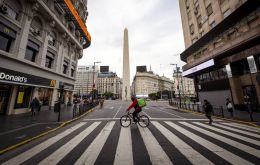
A huge power cut in the Argentine capital Buenos Aires caused a blackout to hundreds of thousands of homes and businesses on Tuesday and brought metro lines to a standstill. The blackout also occurred when the country's medicine and pharmaceutical regulator extended an emergency authorization to the Pfizer BioTechN vaccine.
-
Wednesday, December 23rd 2020 - 09:40 UTC
Weather and ports' strike in Argentina boosting soy and cereals prices
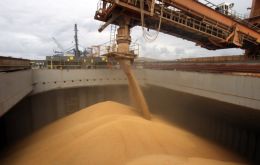
United States soybeans climbed to six-year highs this week as weather and export troubles in Argentina outweighed concerns of a new coronavirus strain hitting Britain. Corn and wheat futures traded near even as soybeans supported the grains complex.
-
Tuesday, December 22nd 2020 - 08:18 UTC
Workers strike in Argentine ports disrupting wheat millers' operations in Brazil
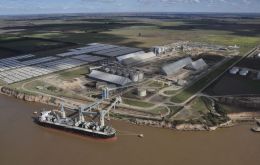
The prolongation of a workers' strike in the ports of Argentina may disrupt wheat millers' operations in Brazil, especially if the labor action is not called off before the end of the year, industry representatives were quoted in the Brazilian media.
-
Tuesday, December 22nd 2020 - 08:15 UTC
Argentine bishops: With Covid-19 taking lives and 50% poverty, it's no time to address abortion
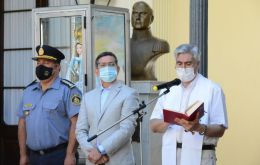
The president of the Argentine bishops’ conference called on lawmakers to “reflect” as they prepare to debate a bill that would legalize abortion in the South American country.
-
Monday, December 21st 2020 - 09:32 UTC
Advancing Falklands' sovereignty claims, one of Argentina's objectives as chair of Mercosur
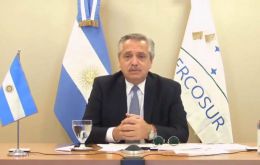
Argentina is holding the pro tempore rotating chair of Mercosur during the next six months and three are its main objectives during that period according to foreign ministry sources in Buenos Aires. They include Bolivia, the Falklands/Malvinas claim and trade accords and negotiations with other countries.
-
Monday, December 21st 2020 - 08:55 UTC
Argentina and Chile suspend flights from UK as of midnight Tuesday
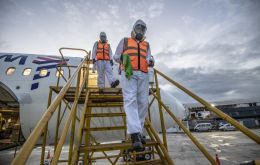
Argentina and Chile announced late Sunday that they are suspending flights from the UK after health officials in Britain confirmed that a new variant of the coronavirus was rapidly spreading in the country.
-
Saturday, December 19th 2020 - 09:50 UTC
Argentina asks Portugal to consider the Falklands a litigation issue and not a British Overseas Territory
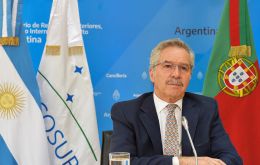
Argentina and Portugal foreign ministers agreed on a fluid dialogue and standing contact during the next six months to address bilateral issues, the Mercosur/European Union trade deal and the Falklands/Malvinas question.
-
Friday, December 18th 2020 - 08:54 UTC
Unemployment in Argentina during the third quarter remains at two digits
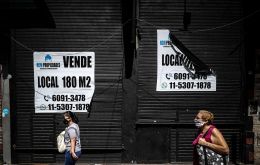
The unemployment rate in Argentina fell in the third quarter from the previous three months as an economic activity seems to be tepidly recovering. The rate fell to 11,7% at the end of September compared to 13,1% in the second quarter, according to the country's stats office, Indec.
-
Friday, December 18th 2020 - 08:41 UTC
Putin's comments on the Sputnik V vaccine spoil Argentine government promises
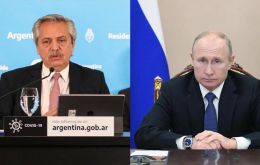
Russian President Vladimir Putin’s comments on Thursday about waiting to take the Sputnik V coronavirus vaccine due to his age, reverberated in Argentina where the government plans to use the shot to initially immunize priority groups including the elderly.
-
Friday, December 18th 2020 - 08:20 UTC
Amnesty International presents 250,000 signatures in support of legalizing abortion in Argentina

Amnesty International on Thursday presented 250,000 signatures it has collected from around the world in support of legalizing abortion in Argentina ahead of a crucial Senate vote. Argentina's lower house of Congress voted last week to legalize abortion, sparking jubilant scenes amongst activists.
